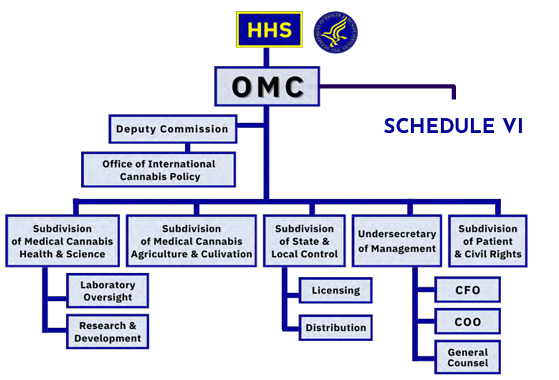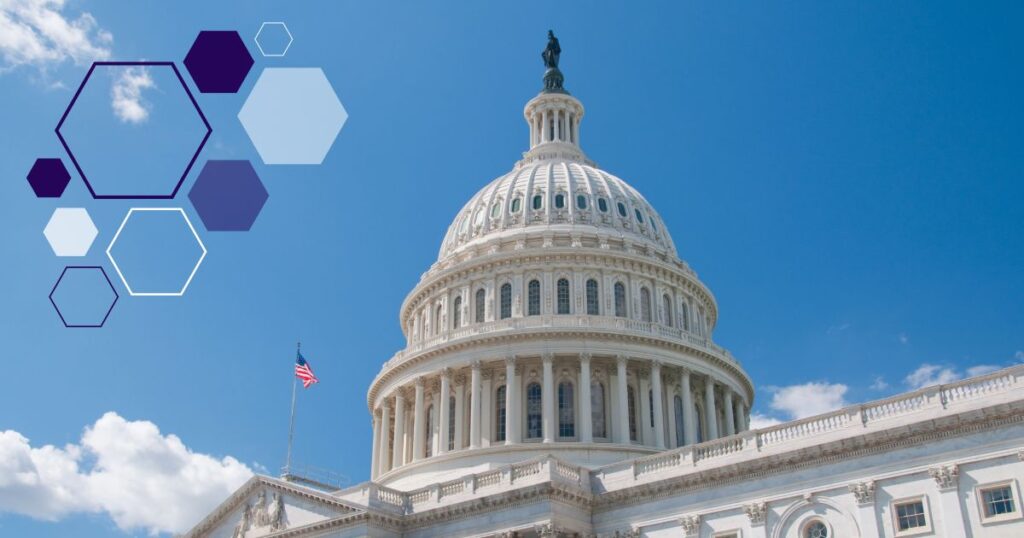After years of progress, medical cannabis patients and the programs that serve them are once again under attack.
In a troubling development, the House Appropriations Committee in 2024 approved a version of the Commerce, Justice, and Science (CJS) Appropriations Bill that added language opening the door for federal interference in state-level medical cannabis programs (with double the penalties) and preventing the use of federal funds for rescheduling efforts.
While the bill did not ultimately become law, many of the 25 lawmakers who wrote in support of these changes now hold key committee positions—including both the Senate and House CJS Subcommittees.
More recently, in April of 2025, then-U.S. Attorney Ed Martin Jr. wrote a letter to the owners of a licensed cannabis dispensary in Washington, D.C., warning them that they are in violation of federal law for being located within 1,000 feet of a school and therefore at risk of federal enforcement actions (in California, the minimum sensitive use requirement is 600 feet).
Attorney Martin’s warning represents a brazen departure from historical precedent and signals the potential for renewed interference in states’ medical cannabis programs, despite overwhelming public support for the legalization of medical cannabis.
Add to these threats the continued challenges and inequities resulting from cannabis’ continued Schedule I status, including:
- Discrimination in housing, employment, education, healthcare, and travel;
- Inequitable access to safe and affordable products that meet patients’ needs, both within and between states;
- Severe and disproportionate enforcement of cannabis laws targeted towards people of color and low-income communities;
- Lack of access to essential business services like banking, tax deductions, and interstate commerce for licensed medical cannabis businesses;
- Continued restrictions and minimal investment into research on cannabis’ medicinal benefits;
- Limited healthcare provider education on cannabinoid medicine and risks for providers and institutions who do wish to recommend medical cannabis; and
- The challenges posed by the growing intoxicating hemp market.
To address these issues, Americans for Safe Access (ASA) has crafted comprehensive federal legislation, the Medical Cannabis and Cannabinoid Act.
A Path Forward: The Medical Cannabis and Cannabinoid Act (MCCA)
At its most basic level, the MCCA would create an Office of Medical Cannabis (OMC) housed under the U.S. Department of Health and Human Services.

The OMC would “facilitate access to medical cannabis for therapeutic use and research, regulate production of medical cannabis and cannabinoid products [including hemp-derived intoxicating cannabinoid products], facilitate private-public partnerships for product development and research, and oversee the new Schedule VI.”
Passing the MCCA would bring the U.S. into compliance with international law, including the U.N. Drug Treaties. Other key provisions include:
- Right for Patients. By removing cannabis from the purview of the Drug Enforcement Agency, there would be no criminal penalties associated with Schedule VI. Patients in every state and territory would be afforded the same rights as other prescription recipients and would have protected access to federal housing, employment, healthcare, education, VA benefits, and interstate travel.
By coordinating consistent testing and labeling standards across states and promoting research and product development with the help of existing cultivators and manufacturers, patients would have equitable access to safe and effective products all across the country, including through home grow.
The OMC would coordinate with Medicare and Medicaid around insurance coverage for medical cannabis products, promoting affordable access for patients. Additionally, the Department of Justice would be instructed to issue automatic expungements for all non-violent federal cannabis charges and arrests, and having a previous drug conviction would not disqualify an individual from seeking a specialty license, described in greater detail below.
- Rights for Businesses. The MCCA would bring state medical cannabis programs into compliance with federal law through the provision of “specialty licenses” awarded to medical cannabis cultivators, manufacturers, retailers, and “access points” (e.g., dispensaries, pharmacies, assisted living facilities).
Additionally, non-intoxicating cannabinoid products would be regulated as over-the-counter products under Schedule VI-A. In addition to protections against federal interference, entities with specialty licenses would be able to take advantage of tax deductions, banking services, and interstate commerce with other licenseholders. Individuals with work visas would be eligible to seek employment through specialty licenseholders.
- Rights for Healthcare Providers and Institutions. Under the MCCA, healthcare providers and institutions (including the VA) would not be at risk of losing federal funding or accreditation for prescribing medical cannabis or allowing its possession and/or use in their care. Providers would issue specialty prescriptions for medical cannabis as opposed to physician recommendations.
Act Now to Support the MCCA
Despite turbulent political times, passing the MCCA is not outside of the realm of possibility. For example, the Congressional Research Service has already endorsed the concept of an alternative regulatory regime, such as a new schedule, for cannabis. State lawmakers are scrambling to regulate intoxicating hemp products, with no clear framework in sight.
And, while some initial start-up costs would be required, the MCCA offers opportunities for revenue generation, such as through licensing fees and private-public research partnerships, as well as savings, including reduced prescription drug utilization and lower workers’ compensation claim amounts.
Much like how state medical cannabis programs paved the way for adult-use markets, federal protections and reform under the MCCA will deliver widespread benefits beyond the patient community.
ASA has numerous resources for medical cannabis stakeholders to take action in support of the MCCA. Here are several ways you can support the MCCA:
- Contact your members of Congress and urge them to sponsor or support the bill;
- Spread the word on social media and in your community;
- Host educational events or set up an advocacy table at local events;
- Engage the media;
- Share your personal story;
- Make a donation to sustain on-the-ground advocacy efforts;
- If you are an organization, officially endorse the MCCA or request more information via this form.
Finally, remember to follow ASA on social media and subscribe to our newsletter for the latest updates.
Medical cannabis is at a critical crossroads in the U.S. Now is the time to act if we are to not only prevent regression from the status quo, but move forward on cannabis policy. Let us stand together for patients, equity, and access.

Shelby Huffaker, MPH is Chair of the San Diego chapter of Americans for Safe Access and a public health research coordinator who studies substance use. Her passions include cannabis, harm reduction, and the sociology of health, particularly as it relates to stigma and health equity. In her free time, Shelby enjoys running, singing in the shower, traveling, and spending time with her dog, Kai.
















